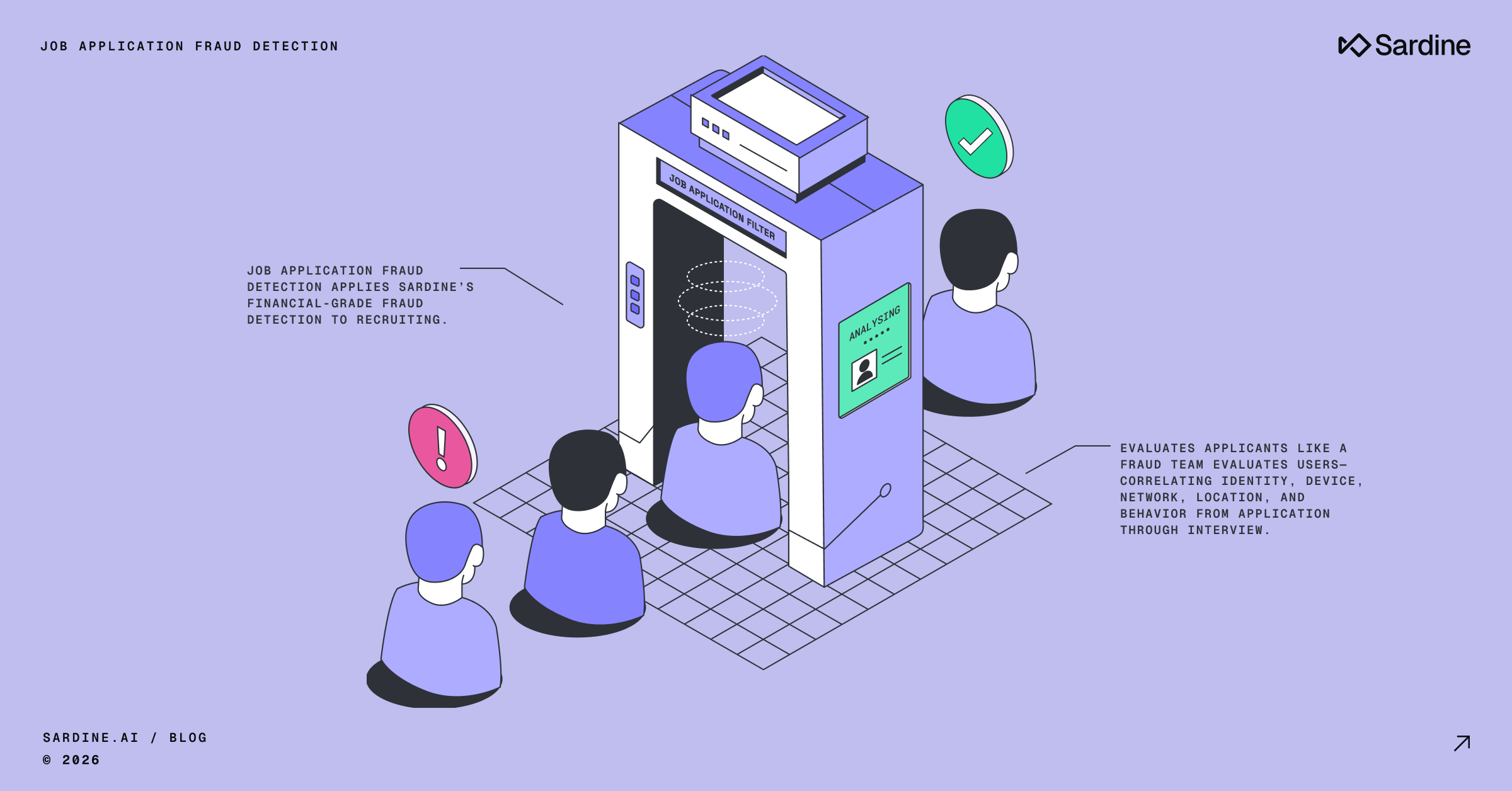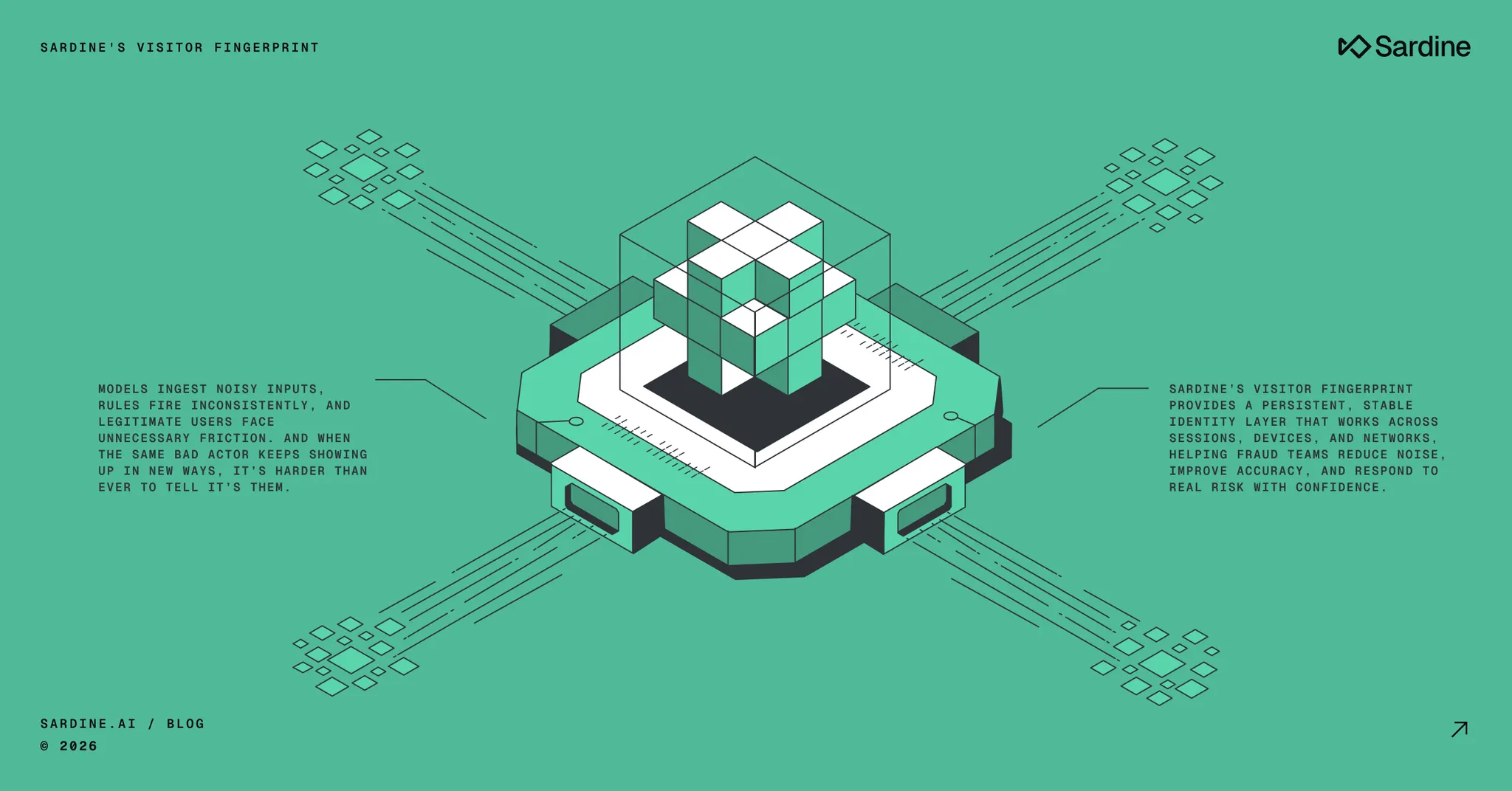Collaboration in remote work: The Sardine Hackathon
This year sardine had our first internal hackathon.
Here are some quick stats
- 49 people from 7 countries participated 🌎
- 2 people created a PR for the first time 🎉
- 20 projects! 🚀
It was a successful hackathon that produced many ideas we’ve already launched or are launching to our customers in the next few weeks.
It was a 2-day fully remote hackathon. We had 20 teams participating and each team had 4 minutes to present their ideas along with demos. Our judges as well as the audience voted favorite solutions based on four criteria - creativity, business impact, presentation and implementation. Winners got nice prizes using our customers' services - gift card from raise.com, crypto from coinbase or blockchain.com, and ledger nanoX wallet.
Introducing The Judges
We always prefer to build things along with our customers. This time, we invited some of our customers as judges for our hackathon.



Most creative award 1: zero-knowledge proof KYC
With the current KYC process, all PIIs are shared with merchants so they can perform KYC. This means there are multiple points of potential data breach and privacy invation.
In this session, Chandan presented demo using Snarky JS


Most creative award 2: Visualize Mouse Movement
Sardine collects various user’s behaviour data including mouse movement and use it for fraud prevention. However, today it’s hard for our customers to understand why certain session is marked as risky.
This project is to create customer-facing dashboard to visualize mouse movement and heatmap for the given session


Business solution award: Dispute Evidence
Chargeback is projected to be a $50B problem by the US alone. Some reports say 85% of chargebacks are illegitimate. Merchant has to dispute those chargebacks, but these are labor intensive work that requires specific knowledge and experience as well.
Sardine already collects various information and is on the hook for transaction flow. We can automate lots of dispute evidence processes. In this hackathon, we built a flow where analysts can easily draft dispute evidence based on pre populated templates with various data points and compelling documents, and submit them to the processor with one click.



Best Presentation: ATO
Account takeover is one of the problems we can solve with device intelligence and behavior biometrics. Cat and Nadya presented some enhancements around showing historical session data for the given user so it’s easier to highlight changes in IP location, device information, etc.



Best Implementation: Action Bar
Our customer spends hours using our dashboard on day to day operation. Today certain navigation or action requires multiple clicks.
This project provides an action bar palette that allows quick navigation by keyboard and provide 10x productivity.

Grand champion: sardine support AI
In our slack channels, the same queries tend to resurface repeatedly. This is true in the case of internal and external channels. Sometimes knowledge is confined to a few individuals. Despite the presence of numerous answers to frequently asked questions in our documentation, they often go unnoticed, resulting in redundancy.
We have built a slack bot using LLM technology. Bot is trained using internal and external documentation.
Here are a few examples of the bot in action.


When bo cannot figure out the answer, it can also create the support ticket.

LLMs are also good at producing summary so here is another use case.

Other notable projects
Customer 360
One of sardine’s values is “customers come first”. Today information about customer is stored in various different systems (asana, notion, zendesk, salesforce, authentication service, feature flag service etc). Customer 360 tools provides one stop shop for all information about the customer.

Rule revealer (will be released on July 6)
When users are reviewing a session, they can see which rules fire but they don’t know why.
For each rule, we now display feature values as well as rule definition at the time of sessions, so it’s easier to understand why rules are fired.

Rule changelog (will be released on July 6)
Rule misconfiguration can be expensive for the business. We built UX for easily comparing before and after of change so it’s easier to review the change.

Dynamic KBA (knowledge based authentication)
Knowledge based authentication (e.g., where was your last transaction made) is a security measure to verify user identity by asking questions based on their knowledge. These tends to be implemented in rule-based fashion and have some problems including
- Hard to come up with and maintain useful questions
- Often requires exact match (e.g., last transaction location was recorded as “Whole Foods Market” in system and user might type “whole foods”)
We built a prototype of dynamic KBA using LLM to both come up with questions and evaluate answers.

Dashboard social features
There are lots of demands for collaboration among risk experts. We built a prototype of chat inside our dashboard.

Closing note
Overall, we felt our hackathon was a great success. Some of the ideas presented here are already being deployed or actively being developed. For instance rule revealer and rule change log were deployed as of July 6th. We love to ship things based on customer feedback, so if you’re interested in any of the ideas presented here, please reach out to your sardine contact.



%20(1).png)


.png)




